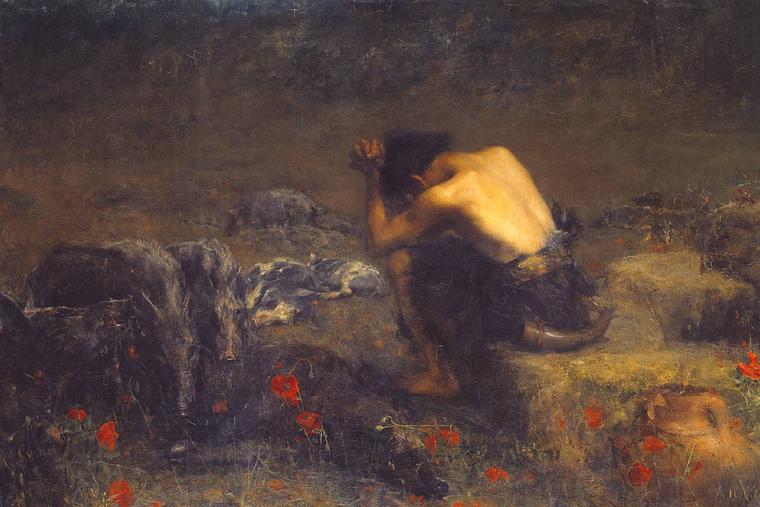Today’s prodigal sons have squandered their wealth to wallow in occultism. It is time for Catholics to repent of our bland deism, boldly proclaim Jesus Christ and his Church, and call our brothers and sisters home.
Big Atheism has failed. The three-headed monster of Richard Dawkins, Sam Harris and Christopher Hitchens published countless tomes mocking the idea of God as their acolytes in the media gleefully predicted a tidal wave of atheism submerging the tallest spires of Christendom.
The great wave, however, ebbed into nothingness. In 1970, Pew reported that atheists made up 3% of the American population. By 2023, that number was 4%. It turns out that convincing people they are an accidental speck on a desolate rock hurtling through meaningless space is a tough sell.
In short, the dominance of pure materialism failed to … materialize.
But that doesn’t mean Christianity has won. Around 30% of Americans are now considered “nones,” the vast majority of whom are “spiritual but not religious.” They don’t look to the Church and therefore delve into dark areas.
We have seen moments like this before.
Lies, Larks and Lures
At the dawn of the 20th century, Charles Darwin’s theory of evolution loosened the hold of the Christian imagination on the Western mind. All manner of ideologies, visions and creeds rushed to fill that void.
While many embraced atheistic materialism, rationalism and eugenics, others, suspecting there was more to this world than mere survival of the fittest, employed tarot cards, astrology and alchemy. Some, including the great poet William Butler Yeats, spelunked into a dangerous world of mysticism.
Interest in Freemasonry increased. Fringe elements sought knowledge in the Rosicrucians or organizations such as the Hermetic Order of the Golden Dawn.
Even G.K. Chesterton admitted to having “dabbled” in Spiritualism around that time, employing a Ouija board. He later warned against spiritualism, writing:
The only thing I will say with complete confidence, about that mystic and invisible power, is that it tells lies. The lies may be larks or they may be lures to the imperiled soul or they may be a thousand other things; but whatever they are, they are not truths about the other world; or for that matter about this world.
Yeats’ involvement stemmed from his rejection of modernity’s reliance on rationalism. He resented that secular philosophies blinded many to beauty, mystery and meaning.
“Descartes, Locke, and Newton took away the world and gave us its excrement instead,” he wrote in his diary.
Please continue reading at The National Catholic Register>>>

Leave a Reply